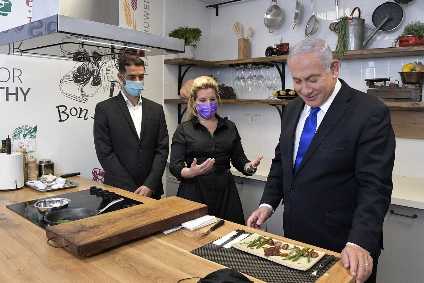
Israel Prime Minister Benjamin Netanyahu has predicted the country will become a “powerhouse for alternative meat and alternative protein” and has launched a new body to oversee the development of this type of food.
On a visit to local cell-based meat company Aleph Farms, Netanyahu said: “I have directed the state secretary Tzahi Braverman to appoint a body to serve these industries in order to connect and oversee all the stakeholders operating in this field.”

Discover B2B Marketing That Performs
Combine business intelligence and editorial excellence to reach engaged professionals across 36 leading media platforms.
Israel is keen to promote its bona-fides as a food-tech hub and will be aware that one of its rivals for this type of innovation, Singapore, last week gave the all-clear for meat created in a laboratory to be sold there.
Netanyahu tasted steak created in a lab from animal cells at Aleph Farms’ base and declared it to be “delicious and guilt-free”.
Israel’s investment in food-tech and innovation has seen it launch, via the Israeli Innovation Authority, incubators The Kitchen Hub and Fresh Start. Aleph Farms was founded and nurtured by The Kitchen Hub incubator of the Strauss Group, in collaboration with Profesoor Shulamit Levenberg, dean of the Biomedical Engineering faculty of the Technion – Israel Institute of Technology.
Didier Toubia, co-founder and CEO of Aleph Farms, said: “The new national plan for alternative proteins involves six different ministries and capitalises on Israel’s unique capabilities.

US Tariffs are shifting - will you react or anticipate?
Don’t let policy changes catch you off guard. Stay proactive with real-time data and expert analysis.
By GlobalData“Aleph Farms is a great example of such collaboration between a governmental agency, the industry, and the academy – all working together to secure a leading position in this key industry.”
Nir Goldstein, managing director of The Good Food Institute Israel, added: “With governmental support in this industry, we could enjoy 11,000 additional jobs that would earn the economy billions of dollars each year. Israel which currently exports only 5% of the food it produces, could become a global supplier of raw materials and advanced production technologies for alternative proteins.”
The country has another pressing reason to develop cell-based meat. At present some 85% of locally-consumed beef is imported.





